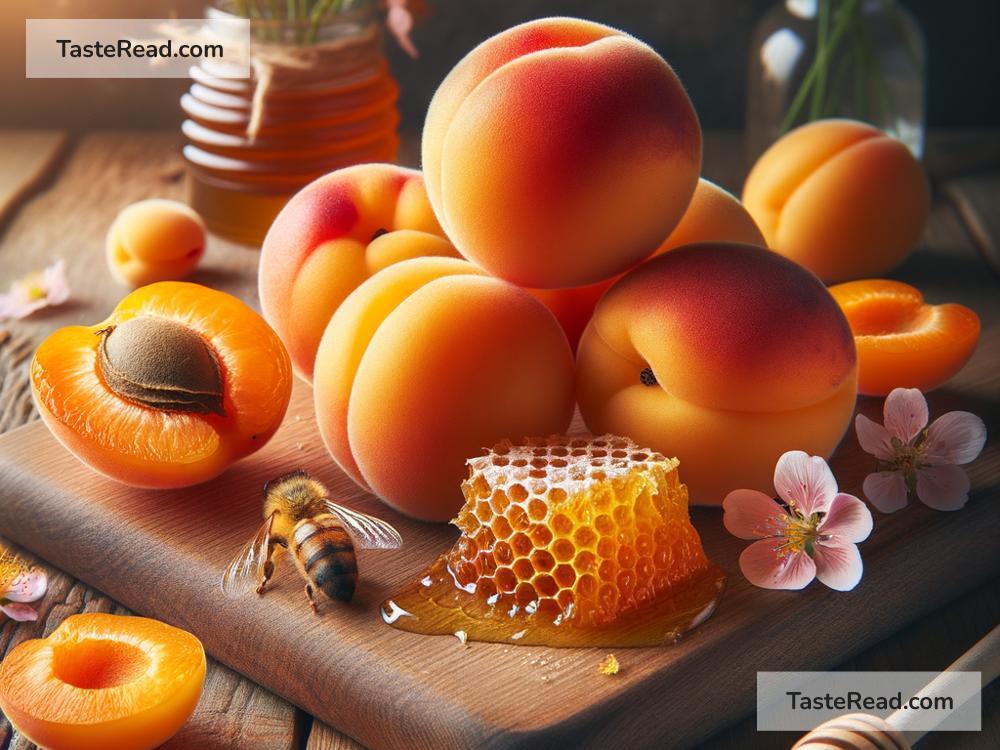Why Fruits Like Apricots Have a Honey-Like Aftertaste
If you’ve ever bitten into a ripe apricot, you might have noticed an interesting flavor—it’s sweet but also has a subtle honey-like aftertaste. Many fruits have this unique characteristic, leaving us wondering: why do apricots taste a bit like honey? What is behind their natural sweetness? Let’s explore this fascinating phenomenon in simple terms!
The Natural Sweetness of Fruits
Fruits are nature’s candy. They taste sweet because they contain sugars like fructose, glucose, and sucrose. These natural sugars are produced during the process of photosynthesis. Photosynthesis is how plants turn sunlight, water, and nutrients from the soil into energy. That energy fuels the fruit’s growth and sweetness.
When fruits ripen, their sugar levels increase, and they develop their full, delicious flavor. Apricots, along with fruits like peaches, nectarines, and mangoes, are known for being particularly sweet. But apricots don’t just taste sugary—they have a deeper, richer flavor that includes hints of honey. Why?
The Science of Flavor
What we recognize as “taste” is actually a combination of taste and smell. Our taste buds detect the basic flavors—sweet, sour, salty, bitter, and umami—while our noses catch more complex aromas. The honey-like aftertaste in apricots is not just about sweetness; it’s also about the fruit’s aroma compounds.
Apricots contain small molecules called volatiles, which are responsible for their smell. These volatiles include chemicals such as lactones, esters, and terpenes. When you bite into an apricot, these aromatic compounds are released, enhancing the fruity taste with floral and honey-like notes. The specific combination of these molecules gives apricots their unique flavor profile.
Why Honey?
So, why do apricots remind us of honey instead of another sweet flavor? The answer lies in the chemistry of both honey and apricots. Honey is created by bees from flower nectar, which contains various sugars and aromatic compounds. The smell of honey comes from similar volatile molecules—often floral or fruity in nature—like the ones in apricots.
Interestingly, some of the volatiles found in honey are also present in apricots. For example, compounds like vanillin (which gives a slightly sweet, vanilla aroma) and terpenes (which often smell citrusy or floral) are shared by both honey and apricots. This overlap in aroma is the reason apricots—and fruits with similar compounds—can remind us of honey.
Ripeness Matters
The honey-like aftertaste is strongest when apricots are ripe. When fruits ripen, their sugars become more concentrated, and their volatiles are fully developed. Apricots that are underripe may taste tart or bitter because they haven’t produced enough sugar or aromatic compounds yet. Overripe apricots, on the other hand, may taste overly sugary and lose some of their delicate honey notes.
This is why choosing perfectly ripe apricots is so important if you want to experience their best flavor. A ripe apricot is soft, fragrant, and vibrant in color. It’s nature’s way of telling us it’s ready to eat!
Other Fruits with Honey-Like Notes
Apricots aren’t the only fruits with a honey-like aftertaste. Many stone fruits, like peaches and nectarines, share similar aromatic compounds. Mangoes, lychees, and certain varieties of pears also have warm, floral notes that can be reminiscent of honey.
Even tropical fruits, like the custard-like cherimoya or the syrupy-sweet jackfruit, have honey-like qualities. Each fruit has its own unique set of sugars and volatiles, but the overlap in chemistry means several fruits can give us that familiar honey flavor.
The Role of Genetics
Ever wonder why certain fruits taste different from others, even within the same type? Genetics plays a big role in a fruit’s flavor profile. Different apricot varieties have varying levels of sugars, acidity, and aroma compounds. For example, some apricots may taste more floral and honey-like, while others taste tangier or nuttier.
Farmers and scientists often crossbreed fruit varieties to enhance desirable traits like sweetness, aroma, or size. By selecting apricots with strong honey-like notes, growers can make fruits that are even tastier.
Enjoying Apricots and Their Honey-Like Flavor
Apricots are a versatile fruit that you can enjoy in many ways. Eat them raw for a juicy snack, or use them in recipes like jams, desserts, or salads. Cooking apricots can intensify their flavors, bringing out even deeper honey-like tones. For example, roasting them with a drizzle of actual honey creates a dish that’s both warm and aromatic.
Dried apricots are another popular option. Their sugars become concentrated during the drying process, and their natural honey-like flavor is amplified. A handful of dried apricots can feel like a burst of sweet sunshine!
Conclusion
The honey-like aftertaste in fruits like apricots is the result of natural sugars and aromatic compounds working together to create a complex flavor. It’s a beautiful example of how chemistry and nature combine to make food delicious.
The next time you eat an apricot, take a moment to savor its unique sweetness. Think about how its floral and fruity molecules are similar to honey, and enjoy this tiny miracle of nature. Fruits like apricots remind us of the beauty hidden in everyday flavors—a sweetness that’s simple yet utterly magical!


